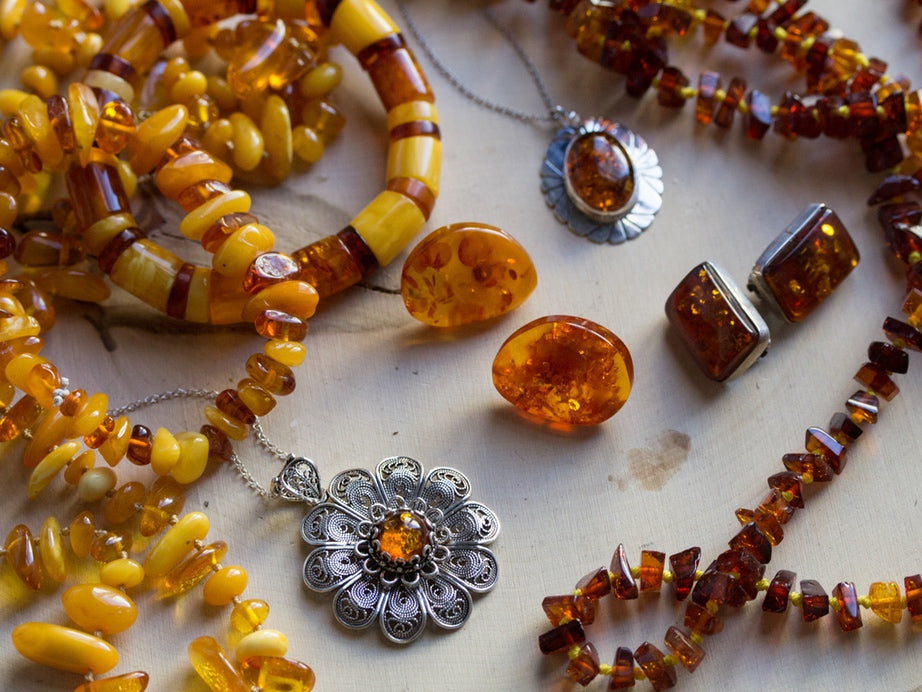the largest estate jeweler in New England | 6 locations | 5 Days a week live shopping on instagram
the largest estate jeweler in New England | 6 locations | 5 Days a week live shopping on instagram
the largest estate jeweler in New England | 6 locations | 5 Days a week live shopping on instagram
the largest estate jeweler in New England | 6 locations | 5 Days a week live shopping on instagram
Add description, images, menus and links to your mega menu
A column with no settings can be used as a spacer
Link to your collections, sales and even external links
Add up to five columns
Add description, images, menus and links to your mega menu
A column with no settings can be used as a spacer
Link to your collections, sales and even external links
Add up to five columns
February 19, 2019 2 min read
Looking into a piece of amber is like entering another world. Molasses like tendrils seem frozen in time, kissed by a golden sunset and surrounded by glittering, confetti-like inclusions. There is a warmth about amber that other gems lack. It’s soft in the hand, and carries with it the evidence of a prehistoric world. These “tears of the gods” are as coveted today as they were in ancient times.
Amber is a fossilized resin from pine and cypress forests. In order for fossilized resin to be considered amber, it must be at least one million years old. If the resin is less than one million, it is considered copal resin. Amber comes in many colors, including yellow, green, brown, black, cherry and very rare blue and violet colors. There are also many types of amber such as: sea, pit, clear, butterscotch, cloudy, foamy, and bone.
The amber that we generally see that is golden in color is from the Baltic sea area of Russia and Poland. To this day, about 90% of amber in the marketplace is mined from this region. The vast remainder comes from the Dominican Republic, but this tends to be more commercial, less expensive, and not as “gemmy” as the Russian material.
We can easily identify amber from its imitators because amber floats in salt water. This is one of the best ways that we can distinguish amber from plastic or glass imitations. We also can test amber by using the “static test”. Amber is warm to the touch and when you rub it, it gets charged with electrons and will attract lint and dust particles. A more destructive test would be to use an acetone, alcohol, or other solvent on the material. Amber will never deteriorate or become “tacky” when interacting with a solvent. The most destructive test would be to use a hot probe on a piece of amber. Heated amber will produce a white smoke and smell like burning wood. Amber has been used for centuries as incense for this reason. On the contrary, the hotpoint will make plastic smell like a disinfectant.
As the resin formed, it was able to capture identifying characteristics such as: insects, plants, moss, seeds and other organic matter. When amber contains a characteristic that can be identified as a particular plant or insect, the piece can be very valuable.
When a clear piece of amber is heated, any inclusions, or air pockets heat at a different temperature and burst. This creates a flat plane inclusion in the amber. These inclusions, which are caused solely by heat treatment, are called sun spangles. The inclusion can even “sparkle” from within the stone.

Amber has been used as adornment for centuries. The Romans and Egyptians were known to decorate themselves with amber. The Greeks called amber “sunshine floating on the sea”, and associated it with mourning because of its naturally occurring teardrop shape. Amber has long been believed to have curative properties, especially for the throat and solar plexus chakras. This makes amber popular for use in necklaces and earrings.
Click the photos to learn more about some of the pieces in our amber collection!
September 17, 2021 2 min read
July 26, 2021 4 min read
June 29, 2021 9 min read
Get 10% off your next purchase!

Get 10% off when you sign up for our newsletter!